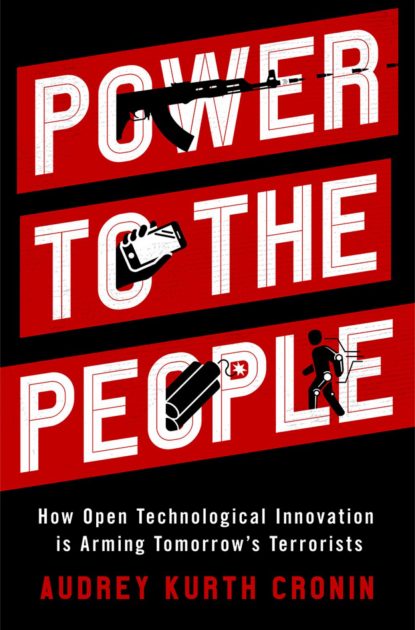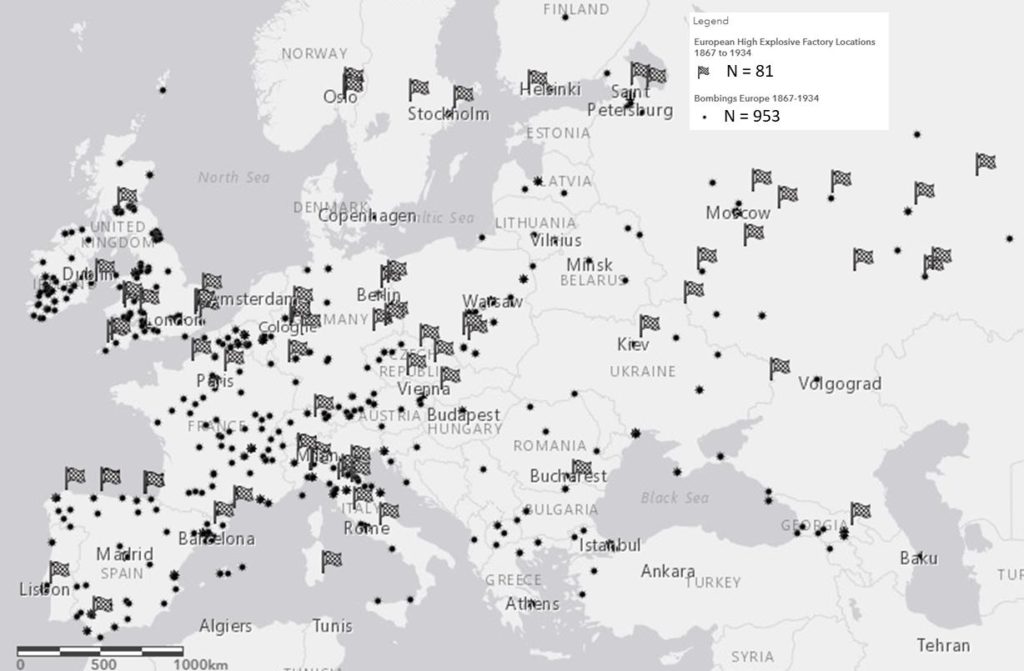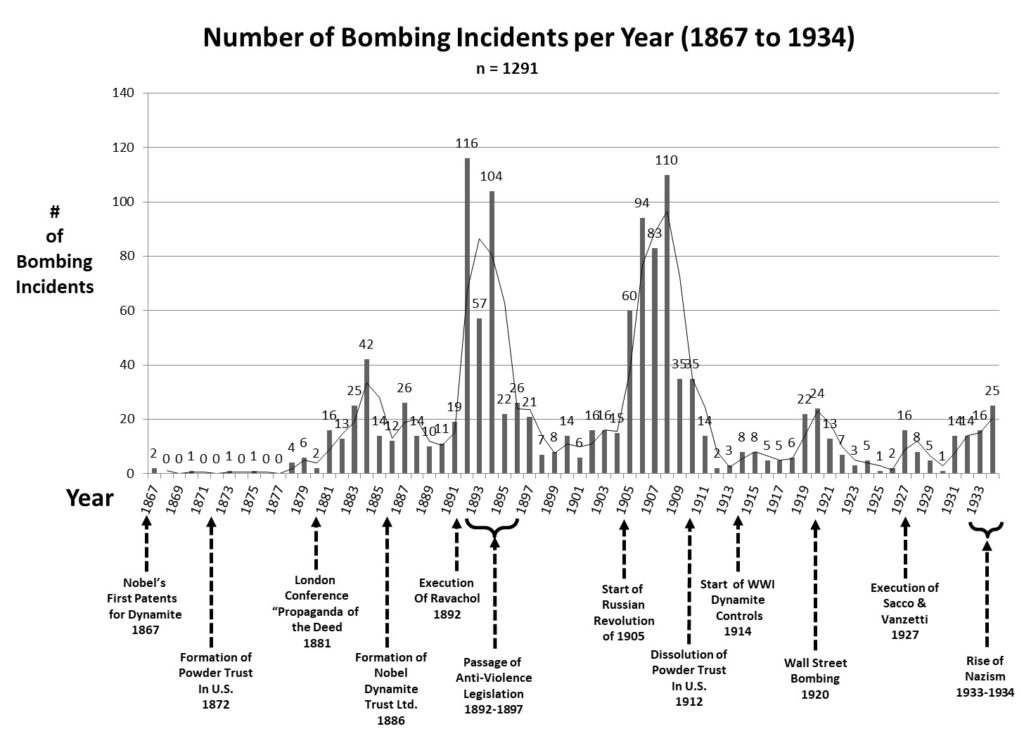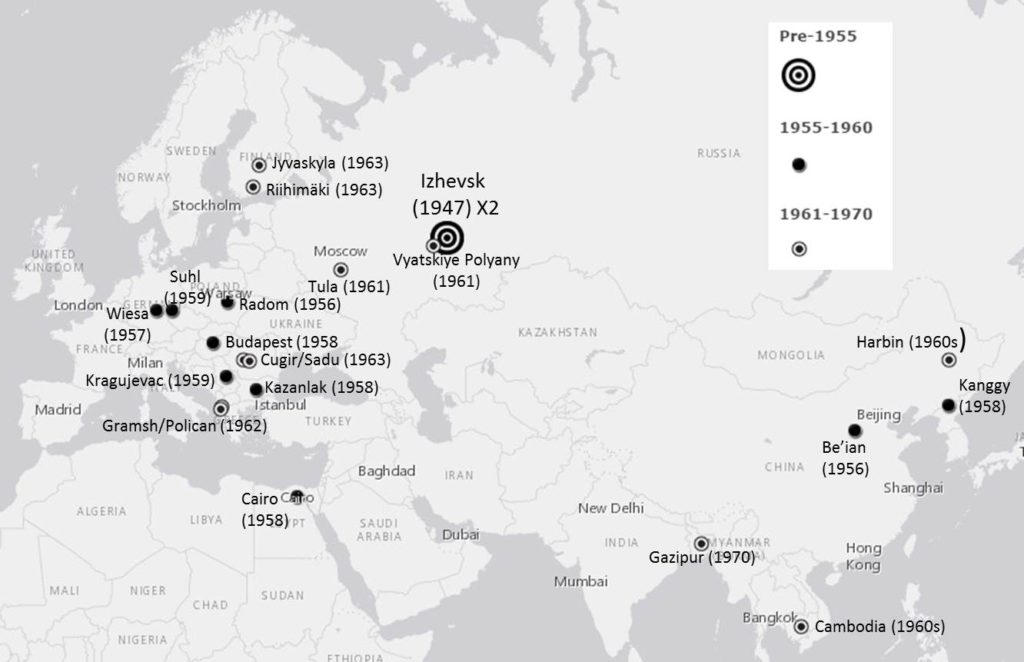Table of Contents











Introduction: The Age of Lethal Empowerment
PART ONE: THEORY
Chapter 1: Classic Models of Military Innovation: Shaped by the Nuclear Revolution
Introduction
The Historical Relationship between War and Technology
Innovation is Double-Edged
The Social Nature of Diffusion
Technology is Not Strategy
Historical Context Matters
Opening Pandora’s Box
Chapter 2: The Arsenal for Anarchy: When and How Violent Individuals and Groups Innovate
Introduction
The Historical Relationship between Political Violence and Technology
How Technologies Were Harnessed
How Lethal Nonstate Actors Innovate
Everett Rogers’ Theory of Commercial Diffusion Revisited
PART TWO: HISTORY
Chapter 3: Dynamite and the Birth of Modern Terrorism
Introduction
The Advent of Gunpowder
Early Explosive Violence from Below
Gunpowder Helps Build the Modern World
Alfred Nobel’s Vision
Dynamite Becomes the People’s Weapon
The Narodnaya Volya and the Killing of the Tsar
The Skirmishers and Clan na Gael
The International Anarchist Movement
Why Dynamite Diffused
Chapter 4: How Dynamite Diffused
Introduction
Innovation Was Not Driven by the Military
The Global Production of Dynamite
Growth Despite Danger
Inexorable Downward Pressure on Price
The Stoking of Discontent
The International Anarchist Convention of 1881 and ‘Propaganda of the Deed’
Dynamite Schools and Pamphlets
Anarchist Newspapers and Periodicals Worldwide
Mass Market Sensationalism
Patterns in Numbers of Attacks
How Global Dynamitings Ended
Nobel’s Remorse
Chapter 5: The Kalashnikov and the Global Wave of Insurgencies
Introduction
The Evolution of Firearms and the Introduction of the Machine Gun
Kalashnikov’s Invention of the AK-47
Why the AK-47 Was so Widely Adopted
A Humble, Yet Disruptive Innovation
Chapter 6: How the Kalashnikov Diffused
The Kalashnikov’s Debut and Public Demonstration
Trading in Kalashnikovs
The Diffusion of Kalashnikovs
A Proliferation of Factories
The Revolutionary’s Weapon of Choice
Back to the USA
The Impact on the Power of States
Why the Kalashnikov Spread
The Floodgates Opened
Kalashnikov’s Regret
The Power of Unintended Consequences
PART THREE: CONVERGENCE: WIDESPREAD LETHAL EMPOWERMENT
Chapter 7: Open Innovation of Mobilization: Social Media and Conquering Digital Terrain
Introduction
The New Nature of Mobilization
New Tools for Old Tactics
New Tools Used in New Ways
Boundless Interactivity
Mobile Streaming Videos and Live-streaming
Quality First-Person Filmmaking Technology
Viral Fake News
End-to-End Encryption
Hijacking Psychological Tactics
Unintended Consequences Redux
Chapter 8: Open Innovation of Reach: From AK-47s to Drones, Robots, Smartphones, and 3-D Printing
Introduction
Convergent Technologies and Extended Reach
The Scope of Unmanned Systems
How Unmanned Aerial Vehicles Extend Private Reach
Predators, Reapers, Global Hawk: Sustaining Technologies
The Pattern of State-to-State Proliferation of UAVs
State-to-Group Proliferation of UAVs: Hezbollah and Hamas
These Are Not the Drones You’re Looking For
Terrorist and Insurgent Groups’ Lethal UAV Programs
Crowd-funded, “Grey Zone,” and Private UAV Intelligence
Advances in the Works
Drones as Missiles
Democratized Precision Strike Capability
Everyone Manufactures Everything with 3D Printing
Individual Flying Devices
Lagging Countermeasures
Chapter 9: An Army of One Launches Many: Autonomy and Artificial Intelligence
Introduction
A Spectrum of Autonomy
The Perils of Full Artificial Intelligence
The Predictions of Lethal Empowerment Theory
Autonomous Reach
Self-driving Truck Bombs
Hijacking the Internet of Things
Autonomous Swarms
Small Autonomous Killer Robots
Tailored for Terrorism
Conclusion: Strategy in an Age of Lethal Empowerment
Powerful Economic Incentives for Diffusion
Technological Optimism and a Boom in Tinkering
New Communications Technologies Are Powerful Incentives to Violence
Militaries Are Facing the Innovator’s Dilemma
Disruptive Private Armies: The ISIS Precedent
Responding to the Threat
The Profit Motive for Protections
Regulation Is Not Necessarily Strangulation
Building Up National Security
Strategy in an Age of Lethal Empowerment
